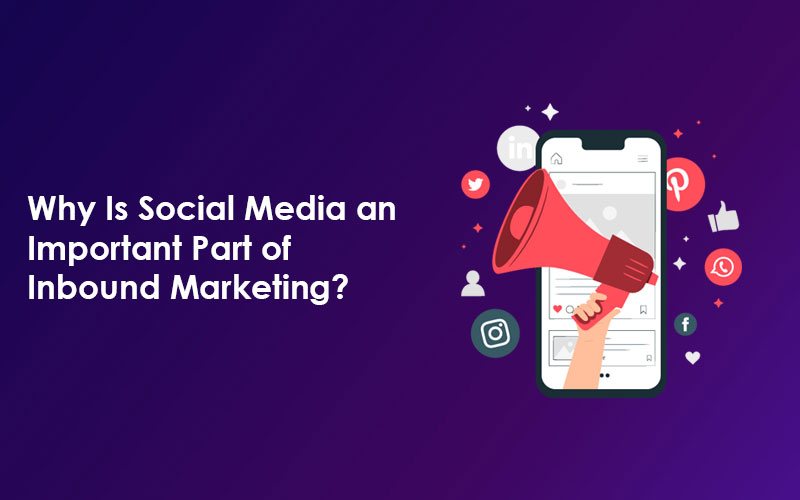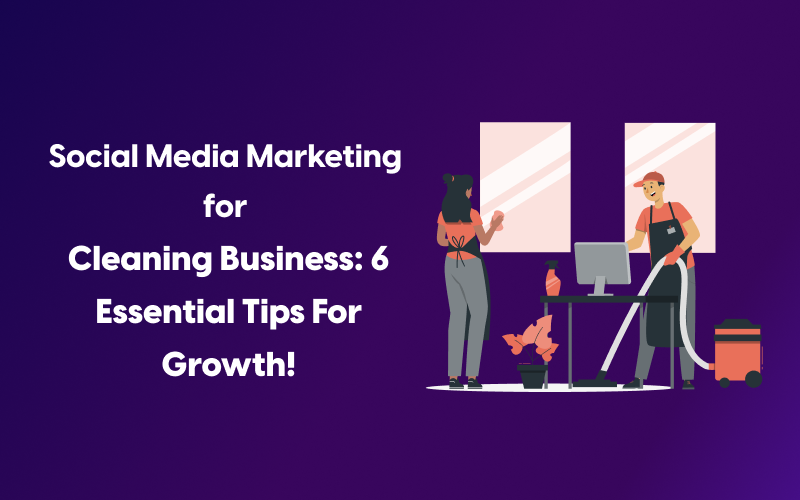Step into the dynamic world of inbound marketing, where the primary focus is on attracting customers organically rather than imposing messages upon them. In today’s rapidly evolving digital era, businesses are swiftly adjusting their strategies to cater to the shifting preferences of consumers. At the forefront of this marketing transformation lies a crucial element – social media.
This potent tool has revolutionized the way brands establish connections with their audiences, making it an important component of successful inbound marketing strategies.
Join us on this exciting exploration as we unravel the significant role of social media in inbound marketing. Throughout this blog, we’ll uncover the ways social media expands brand reach, fosters genuine engagement, and ultimately boosts business growth. We’ll explore how social media becomes a lead-generation gateway and intertwines with other inbound marketing channels to create a holistic approach.
What is Inbound Marketing?
Inbound marketing is a customer-focused marketing methodology that aims to attract and engage prospects by providing valuable and relevant information rather than resorting to aggressive sales tactics. It involves creating compelling content and experiences that resonate with the target audience, ultimately building trust and loyalty over time.
As the renowned digital marketer, Neil Patel eloquently puts it, “Inbound marketing is a subtle, not-so-salesy way of attracting prospects; then engaging them with relevant, helpful information until they become customers and advocates.” This statement encapsulates the essence of inbound marketing, highlighting its emphasis on building relationships and providing genuine value to potential customers.
In contrast to traditional outbound marketing, which relies on interruptive advertisements and cold calling, inbound marketing seeks to address the audience’s specific needs and pain points. By offering valuable content through blog posts, social media interactions, email newsletters, and other channels, businesses can capture the attention of prospects and establish themselves as authoritative resources in their industry.
The inbound approach is customer-centric, focusing on understanding the buyer’s journey and delivering content tailored to each stage. By nurturing leads with informative content, businesses can guide prospects through the decision-making process, leading them closer to making a purchase.
Why Is Social Media Important?
Social media’s importance in modern business strategies is undeniable, and data and statistics clearly support this significance:
- As of 2023, a staggering 81% of individuals acknowledge that social media has raised the bar for business accountability. In this increasingly intricate social media landscape, transparency and authenticity have become indispensable for businesses to navigate.
- Despite a slight dip in the average click-through rate (CTR) on social media platforms, currently standing at 1.21%, businesses should remain committed to creating captivating ad campaigns that drive engagement and conversions. This emphasizes the importance of businesses leveraging social media’s potential for effectively connecting with and engaging their target audiences.
- In the digital business landscape, small businesses have swiftly recognized the power of social media. An impressive 77% of them actively utilize social media to engage with their customers. Moreover, 41% of these businesses rely on social media as a key revenue driver, showcasing its significant impact on their overall financial performance.
- Social media’s impact is insane, as evidenced by a remarkable 90% of social media users who follow at least one brand. Establishing and nurturing a robust social media presence is essential for businesses to foster brand loyalty and effectively engage with their audience.
- Additionally, the influence of social media on consumer buying decisions cannot be underestimated. A remarkable 76% of users have made purchases based on a brand’s social media post.
6 Reasons Why Social Media Is an Important Part of Inbound Marketing?
Inbound marketing has witnessed a transformation with the emergence of social media as a game-changer for businesses. Curious to explore the six compelling reasons that make social media an indispensable part of your inbound marketing strategy? Let’s delve into the depths to uncover why integrating social media can take your marketing campaigns to the next level.
1. Expanded Reach and Visibility
Expanded reach and visibility are like wings that lift a business to new heights in the digital world. With billions of active users, social media offers an unparalleled opportunity for businesses to spread their wings and soar above geographical boundaries, reaching a vast and diverse audience like never before.
Imagine a small artisanal coffee shop nestled in a quaint town. With social media, that cozy café can now showcase its unique blends and handcrafted delicacies to coffee enthusiasts worldwide. By sharing captivating images and engaging stories, the café attracts coffee lovers far and wide, expanding its reach beyond the local community.
Moreover, social media provides businesses with the power of real-time interactions, allowing them to engage with their audience on a personal level. Take, for instance, a fitness apparel brand responding promptly to customer inquiries and feedback on Instagram.
By offering top-notch customer service and building a sense of community, the brand’s visibility soars as satisfied customers become enthusiastic brand advocates, spreading the word about the exceptional experience.
2. Authentic Engagement
Authentic engagement is the heartbeat of successful social media strategies, breathing life into brand-consumer relationships like never before. In an era where consumers seek genuine connections, businesses that prioritize authentic engagement hold the key to winning the hearts of their audience.
In fact, show that 86% of consumers prefer authentic and honest brand communication on social media. When businesses create a transparent and sincere online presence, they build trust and loyalty, establishing a solid foundation for lasting relationships with their customers.
An exemplary demonstration of authentic engagement can be witnessed in the fashion industry. When a clothing brand takes swift action to respond to customer inquiries and actively engages in meaningful conversations on social media, it cultivates a sense of belonging and connection among its followers.
3. Humanizing the Brand
Have you ever felt an instant connection with a brand that felt more like a trusted friend than a faceless entity? That’s the magic of humanizing the brand through social media.
By infusing personality, values, and genuine human touch into their social media presence, businesses create an emotional bridge that resonates with their audience on a personal level. When a brand shares behind-the-scenes glimpses, introduces its team members, and showcases the faces behind the products or services, it becomes more than just a logo or a name – it becomes a relatable and trustworthy companion.
Through the lens of humanization, even global corporations can showcase their human side. By spotlighting the philanthropic efforts and charitable initiatives they support, these businesses portray themselves as caring and socially responsible entities.
This kind of authentic storytelling establishes a deeper connection with customers, who feel proud to be associated with a brand that shares their values and principles.
4. Lead Generation Opportunities
Lead generation opportunities through social media are abundant and immensely valuable for businesses of all sizes. By crafting compelling and targeted content, businesses can attract the attention of their ideal audience, prompting them to take action and become leads.
Social media’s real-time interaction capabilities allow for immediate engagement and response, nurturing relationships with potential customers.
Moreover, social media’s ability to gather user data and insights allows businesses to create more personalized and tailored lead-generation strategies. By understanding their audience’s preferences, behaviors, and pain points, businesses can craft content and offer that resonate and drive conversions.
5. SEO Optimization and Enhancement
A study conducted by Moz reveals a compelling correlation between a strong social media presence and higher search engine rankings. Websites with an active and engaging social media presence are more likely to achieve better positions in search engine results compared to those with limited or no social media activity.
The impact of social media on SEO goes beyond mere presence; it drives increased website traffic. By sharing valuable and captivating content on social media, businesses attract a flow of visitors to their websites. Search engines view this surge in web traffic as a positive signal of relevance and authority, which can lead to improved rankings.
6. Valuable Customer Insights
Social media analytics offer data-driven insights into customer behavior and engagement patterns. Tracking metrics like click-through rates, shares, and comments allows businesses to assess the effectiveness of their content and make informed decisions to refine their strategies.
But these insights are more than just numbers; they offer a glimpse into the emotions and sentiments of customers towards the brand. Positive feedback highlights what customers love about the products or services, while negative feedback presents opportunities for improvement.
Conclusion:
That’s all, folks! Social media’s significance in the inbound marketing journey cannot be overstated. As technology and consumer behavior constantly evolve, businesses must wholeheartedly embrace social media to thrive in the dynamic digital landscape. By harnessing the full potential of social media, businesses can build a strong online presence, connect with their target audience, and create personalized experiences that lead to success in the ever-changing world of inbound marketing.





